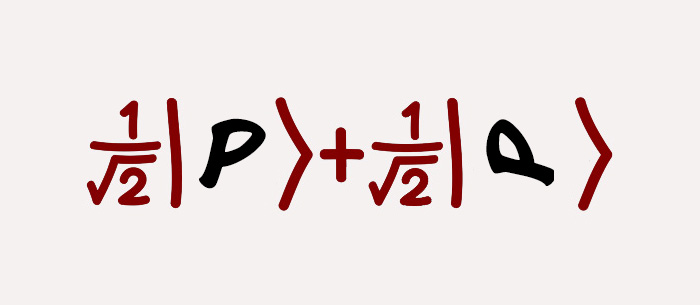
Chad Orzel linked yesterday to a post by Sabine Hossenfelder about quantum superposition, and it unsurprisingly degenerated into the usual mush that interpretations of quantum mechanics always do. But then the subject turned to linguistics and it got interesting. As you may know, the quantum wave function is represented by the Greek letter psi (Ψ), with |Ψ²| representing the probability of a particle being found in any particular place.¹ So a reader decided to try on a joke in comments:
How should Psi be pronounced? Is it P-Si, Si, or a superposition of the two? Or is the word not pronounceable until it is spoken, like when Prince changed his name.
But Hossenfelder took the question seriously:
Well, I pronounce it the way that I have heard it most often which in English is “ps-ai” (in German it would be “ps-ee”). The easiest way to find out I guess is to listen to the video? I have no idea which one is the “correct” pronunciation, given that it’s Greek and I don’t speak Greek, but I can tell you that if you pronounce it this way physicists will know what you are talking about.
Huh. I’ve always pronounced it sigh, rhymes with pie. It never occured to me that you’d pronounce the initial P.² So I googled around a bit and got conflicting answers, which I suppose is very on-brand. However, on one particular site the speaker was clearly pronouncing it p-sigh, but with just the barest emphasis on the P. The best I can describe it is that it sounded as if the P was trailing off before it even got started, followed by a normal pronunciation of sigh.
So I guess this is a question for physicists, or anyone who’s taken a quantum physics course. Is Ψ usually pronounced with its initial P? If so, how distinct is it?
¹More or less. Don’t @ me with your eigenvalues and inner products.
²And you don’t pronounce the initial P if you’re using psi as short for psionic. We are talking here solely about the pronunciation of Ψ in its quantum mechanical sense.
UPDATE: Answer here!

















